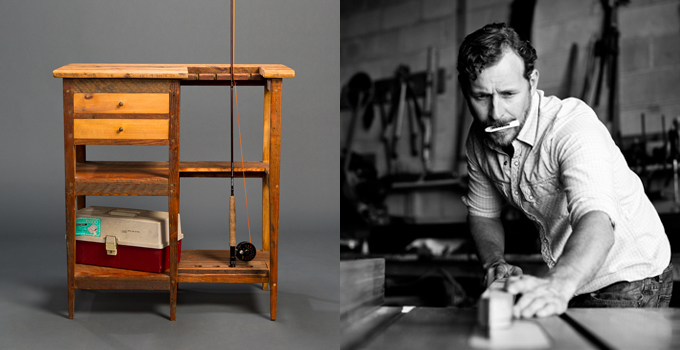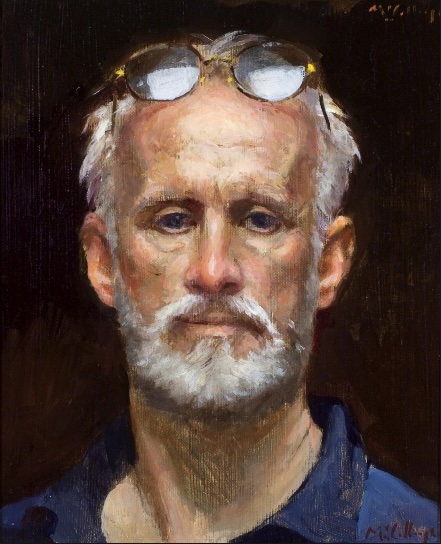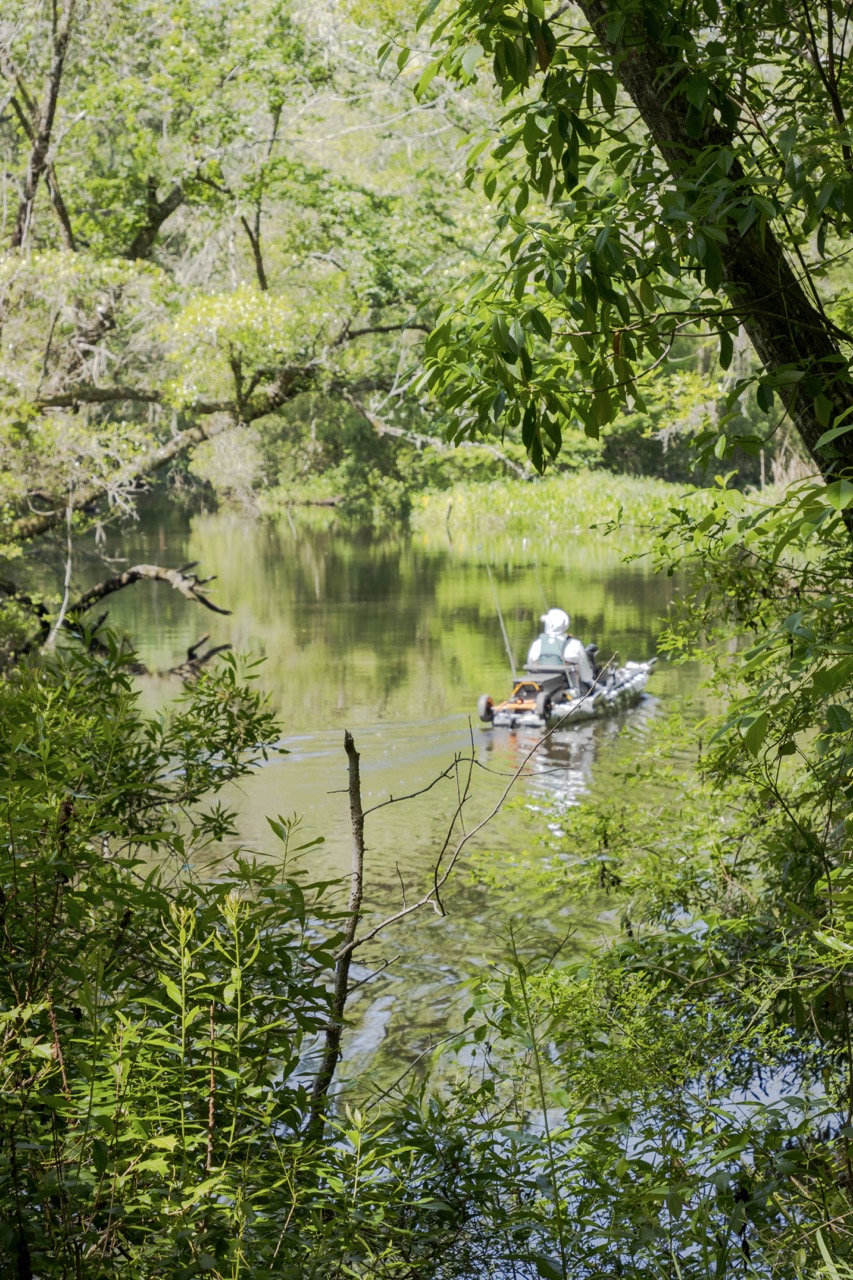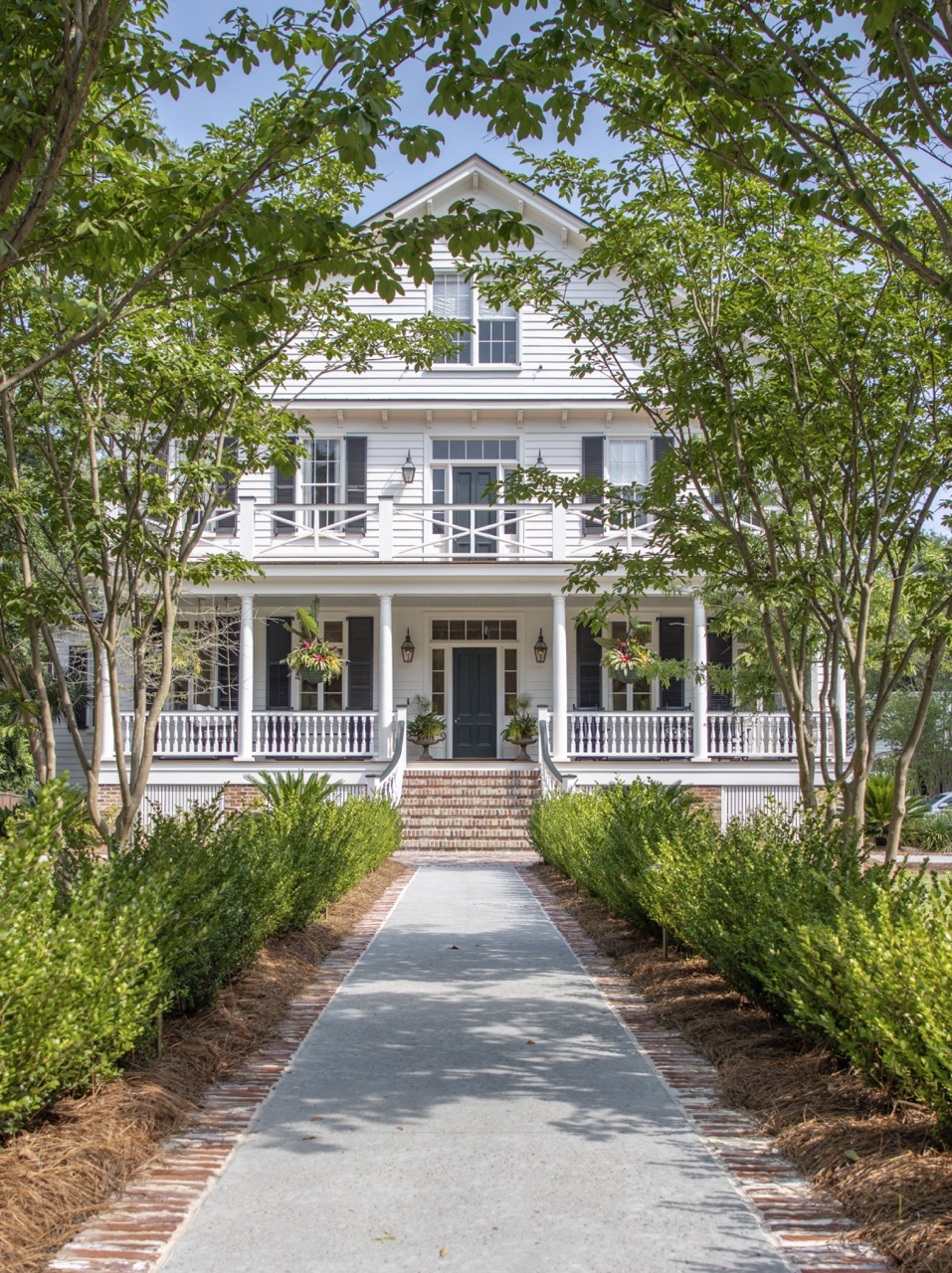In the clean, simple designs of Landrum Tables, Capers Cauthen has discovered that when it comes to life and old wood, it’s what you make of it that counts.
They were destined for the scrap heap. After years of bearing the weight of Charleston’s history, loyally wearing its colors and shielding it from the elements, they were discarded as rubbish. Working in the restoration of historic homes, it pained Capers Cauthen to see the old boards and timbers cast off at construction sites, piled up and waiting to be hauled to the dump. His late father, Henry F. Cauthen, an antiques dealer and longtime director of the Preservation Society of Charleston, had taught him about antiques and the value that time lent to architecture and finely crafted furniture—it seemed a travesty that the same value did not apply to building materials created from pines and hardwoods of antiquity.
Much of his education about furniture building came from the library of books on the subject that he amassed from his time installing hardwood flooring in historic homes and over 21 years of weekends working a booth at Atlanta’s Scott Antique Market and his own booth at Mt. Pleasant’s Antique Mall. His favorite designs came from the Hepplewhite style of furniture; the clean lines appeal to his carpenter’s eye for symmetry.
While he was taking down his grandmother’s old barn one day, he had the idea to build a table from the weathered wood. Life had thrown him curves that had left him with scars of his own; from a divorce, the loss of his father, and a traumatic brain injury that had threatened his very life. So he knew first-hand about rebuilding from imperfect materials. Though he did not know it at the time, this project—and underlying purpose for it—would become the center of his philosophy and his faith. He put the table in his antiques booth, and it sold the next day.
So he built another one, and began collecting more wood for more projects. Nail-scarred and distressed, weather-beaten and warped, the cypress and oak boards found redemption with Cauthen. He found them stacked on roadsides; the heart pine and walnut he rescued from awaiting the strike of a match in a rural burn pile. As his stacks of lumber grew, so did the demand for his work, and his years as an antique historian fed his hunger for “creating something meaningful.”
On a walk with his son at Camp St. Christopher on Seabrook Island, he saw piles of wood that had been removed to make way for a new boardwalk. His request to salvage the wood opened a new avenue of blessing for Cauthen and many others. To those who have attended its summer camps, religious retreats, and conferences, the St. Christopher Tables he creates from the boards weathered in the salt air of the Episcopal Conference Center are tangible reminders of happy memories. For Father Bob Lawrence of the Diocese of South Carolina, Cauthen’s repurposing of the boards are an aptly named reminder of Christians’ belief in resurrection.
The Landrum Tables workshop literally buzzes these days, with employees cutting, sanding, staining, and finishing furniture. Cauthen is quick to point out the team that helps him create his classic designs. His office manager and wife, DeDe, helps him to manage his time and priorities—dotting the i’s and crossing the t’s of the business.
“DeDe runs a tight ship, and I need that,” he says, laughing. “Everyone knows what needs to be done, and does their part to make it happen. Not all of it is fun, and I try to let them know how much I appreciate their hard work. We all depend on each other, and I sure wouldn’t be here without them.”
Their current location is temporary, while plans are underway for a new workshop. The move has already begun and has put the company in a quandary; when it came time to load up all the salvaged lumber, the task presented a unique opportunity for the business to pay its success forward.
“I had way more than I could move, and no place to put it all,” Cauthen says. His solution was to post a notice that he would be giving away what he couldn’t take with him. It meant parting with thousands of dollars of salvaged wood, which paid unexpected dividends.
“The richness of the relationships that came out of that decision will be with me the rest of my life. A lot of that wood had come to me through the generosity of others, and it felt so right to be able to share it, that we’ll probably make it a policy to give away all of our surplus from now on.”
As word has spread, demand for the tables has created a backlog of work for custom orders. It’s a good problem to have, and the wait is well worth it for those who admire the fine lines of the furniture’s rough wood. Cauthen’s designs compliment homes and businesses in over 30 states and 5 countries. Designers look to Landrum Tables to create custom pieces for their clients—for example, one order requested 16 tables for a hunting lodge. His work has appeared in the likes of Architectural Digest, The New York Times, and many prestigious wood design publications.
The passion Cauthen feels for his work is obvious in the serene face of the 47-year-old master carpenter. When asked if he feels as though he has been led to this path, he pauses to gather his thoughts. A man of strong faith, he says that he prays every day for spiritual guidance, and if life has taught him nothing else, it is to look beyond the scars and splinters to see something more.
“I’ve learned that everything in this world is what you make of it,” he says. “Whether it is a relationship or a job or even a pile of old boards.”
For more information about Capers Cauthen and Landrum Tables, visit landrumtables.com or call (843) 764-9091.
by Susan Frampton






